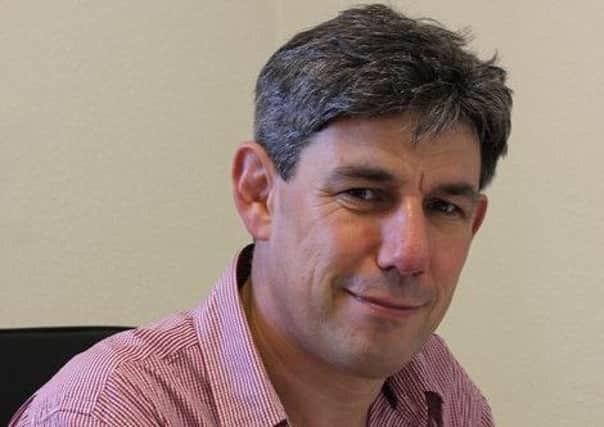Alistair Dutton: We helped cause climate change, so we need to fix it


The 2009 Climate Change Bill received unanimous support from the Scottish Parliament, with a target of cutting Scotland’s emissions by 42 per cent by 2020.
The legislation was widely lauded, and even given the Hollywood seal of approval, with Terminator turned California governor Arnold Schwarzenegger saying it encouraged others nations to “step up to the plate”.
Advertisement
Hide AdAdvertisement
Hide AdAs a nation, Scotland met those 2020 emissions reduction targets early, fulfilling the obligations set out in the 2009 Bill by 2015. That all sounds like good news. But ten years after that legislation was passed, the world is still careering towards a climate catastrophe. So what now?
Action is the answer, and that’s supported by the majority of Scots, with a recent poll by Stop Climate Chaos Scotland showing 70 per cent of people living here are in favour of doing more to tackle climate change.
The Scottish Government has taken note. Following expert independent advice from the UK Committee on Climate Change in April, it has committed to set a legally-binding target of net zero emissions by 2045.
In April, the First Minister also declared a climate emergency, making Scotland the first country to do so. Plans to cut and eventually scrap air passenger tax were abandoned, in the first major policy action following that announcement, as the move was deemed to be out of step with the country’s climate change goals. This is undoubtedly progress, and while we are right to take stock of just how far we’ve come, it’s important that we don’t take our foot off the (environmentally-friendly) gas.
Scotland has an even greater moral obligation to tackle climate change because, as an industrialised nation, we have played a bigger part in creating the problem. For too long our economy relied on industries that burned huge amounts of fossil fuels, and this has done colossal damage to our planet.
The people who are now suffering most as a result of climate change have done least to cause it. Unpredictable weather, and more frequent and severe floods and droughts, wreak havoc in many developing countries. Crops are failing because farmers don’t know when the rains will come. The supply of water, which is vital for drinking and producing the crops needed to feed the world’s poorest people, is increasingly unreliable.
Earlier this year I travelled to Ethiopia and saw for myself the hardships people are forced to endure as a result of the changing climate.
I met a woman called Behefta in Tigray. The river where she lives had dried up in recent years, leaving the land parched and severely limiting what can be grown there.
Advertisement
Hide AdAdvertisement
Hide AdAlong with our partners, we helped to set up a water management system, meaning the river now flows all year round. It provides irrigation to Behefta’s land and she can now grow crops like oranges, guava, coffee and sugar cane.
This help has changed her life for the better, but it was needed because of the damage done by climate change which we have all been a part of.
It’s a similar story in other countries we work in, where lives and livelihoods are being adversely affected by climate change. Thanks to our generous supporters in Scotland, we’re working with local partners around the world to provide safe drinking water for communities, rehabilitate rangeland, and create co-operatives to help people save money and insure their livestock.
But we must all work much harder together to tackle the consequences of climate change. People power has created much of the momentum behind the climate change movement. From school pupils striking to demand action to people marching in the streets to have their voices heard, the fate of our planet has captured the public’s imagination like never before.
On 26 June, SCIAF supporters and staff will be part of a mass lobby at Westminster to tell MPs how much support there is in their constituencies for bold action on climate change.
It’s a chance to educate our elected representatives about the devastating impact climate change has on development, and communities around the world. This climate emergency is everyone’s problem and we all have a responsibility to do everything that we can to fix it.
To support SCIAF’s work please visit www.sciaf.org.uk
Alistair Dutton is the director of the Scottish Catholic International Aid Fund (SCIAF).